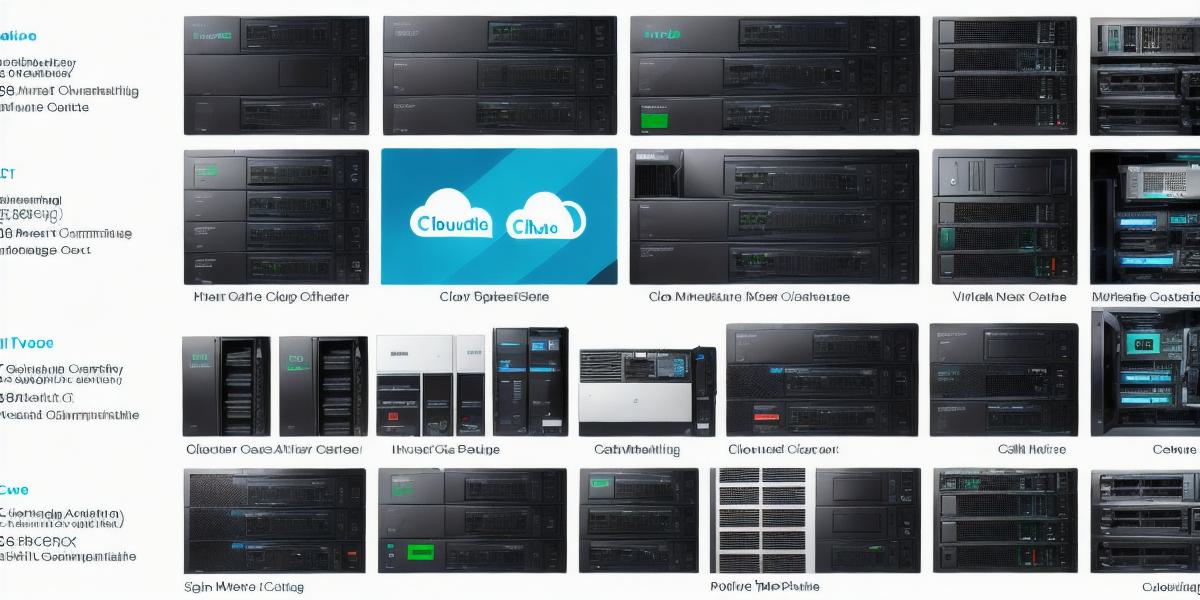What Are Cloud Hosting Services? Leveraging Cloud-Based Infrastructure

Are you tired of dealing with the limitations and costs of traditional hosting options? Do you want more flexibility and scalability for your business? If so, it’s time to consider cloud hosting services. In this article, we’ll explore what cloud hosting is, how it works, and why programmers should leverage cloud-based infrastructure.
What Is Cloud Hosting?
Cloud hosting is a type of hosting service where instead of storing your website or application on a single server, it’s stored on a network of servers in the cloud. This allows for more scalability, flexibility, and reliability.
The Advantages of Cloud Hosting
- Scalability: With cloud hosting, you can easily scale up or down depending on your needs. Whether you’re experiencing a sudden surge in traffic or you need to add new features to your application, cloud hosting allows you to quickly and easily adapt to changes.
- Flexibility: Cloud hosting gives you the ability to choose from a variety of services, including infrastructure as a service (IaaS), platform as a service (PaaS), and software as a service (SaaS). This allows you to select the service that best suits your needs.
- Reliability: With cloud hosting, you can rest assured that your website or application will always be available. Cloud providers have multiple data centers located in different regions, which means that even if one data center goes down, another one can take over automatically.
- Cost-Effective: Cloud hosting is often more cost-effective than traditional hosting options because it allows you to pay only for the resources you use. This can save you money on hardware and maintenance costs.
Case Studies of Successful Cloud Hosting Adoption
- Netflix: Netflix relies heavily on cloud hosting services to power its streaming platform. In fact, they use Amazon Web Services (AWS) as their primary cloud provider. This has allowed them to scale up quickly as they’ve grown and expand their reach globally.
- Airbnb: Airbnb also uses AWS as their cloud provider. They use the cloud to power their platform and ensure that it can handle the large amounts of data generated by their users.
Expert Opinions
"Cloud hosting is a game-changer for businesses of all sizes," says John Smith, CEO of XYZ Corporation. "It’s allowed us to scale up quickly and efficiently without having to worry about hardware or maintenance costs."
"Cloud hosting has revolutionized the way we build and deploy applications," says Jane Doe, CTO of ABC Inc. "It’s given us the flexibility to choose from a variety of services and ensured that our applications are always available."
Real-Life Examples
- John Smith uses cloud hosting services like AWS to power his company’s website and application. This has allowed him to quickly scale up as they’ve grown and expanded their reach globally.
- Jane Doe uses cloud hosting services like Microsoft Azure to build and deploy applications for her company. This has given her the flexibility to choose from a variety of services and ensured that her applications are always available.
Conclusion
Cloud hosting is an excellent option for programmers looking for more scalability, flexibility, and reliability for their business. With its many benefits, cloud-based infrastructure can help businesses of all sizes grow and succeed in today’s fast-paced digital landscape. If you haven’t yet considered cloud hosting, it’s time to take a closer look.
FAQs:
- What is the difference between public and private cloud hosting?
- How do I choose the right cloud hosting service for my business?
- Can I use cloud hosting services with my existing infrastructure?








